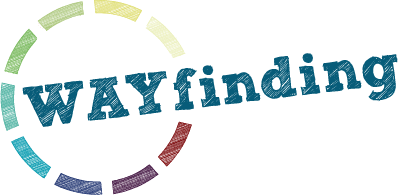| Chad Brown |
Now I know what you might be thinking, “Did he just call me a narcissist?” The answer is no… and maybe. I want to state from the beginning that this post is in no way making light of someone’s otherwise serious condition or diagnosis. The purpose of this post is to review some interesting points about this subject in the interest of becoming more aware of our internal and external experience, and looking more deeply at a subject that we seem to recognize more in others than ourselves.
I have been on a general spiritual journey for about 23 years; however, for the last four years, I have been on a more specific journey focused on what many of us refer to as “healing,” and what I have more recently come to call “integrating.” (More on that integration part later.) I have explored, studied and participated in a multitude of healing modalities and stress relieving techniques, all of which have taught me more about myself and helped me understand why I have been in such confusing pain and, sometimes, so painfully confused.
Recently, I came across an article on the many different types of narcissism. I was intrigued by this; I didn’t know there were several kinds. As I read more articles, educating myself on the potential signs of this condition, a question crept up behind me and tapped me on the shoulder, “Are you a narcissist?”...
Read More| Kim Parker |
When I first began learning about the Enneagram and its nine personality types, I hadn’t yet taken any sort of test or assessment. I learned about all nine types within a two-day workshop. So, on my own, with all the new knowledge I had gathered, I identified my type – or so I thought.
I was fairly confident I was a type 3; but, when I took the test, the results indicated I was a type 9. My immediate thought was, “What?! I am not a sloth!”...
Read More| Kim Parker |
I had taken nearly every personality test that existed throughout my eleven year career in higher education: Myers-Briggs Type Indicator, Strengths Finder, DiSC Profile, Multiple Intelligences Inventory, Intrinsic Motivation Assessment Guide, and the list goes on. It was part of my full-time job to teach college students how to grow in self-knowledge and find a career path through these assessments. So, it comes as no surprise my confidence level regarding my own self-knowledge was fairly high.
Then…life took an unexpected turn....
Read More| Anne Williamson |
Oh, the ego! Such a tiny word, so many disparate opinions. Am I to love my ego or hate it? Embrace it or reject it? Is ambivalence a healthy choice?
For me, the jury is still out. However, I did recently run across an illuminating perspective. It comes from Vedic philosophy. (The Vedas are a large body of texts originating in India 3000 years ago; they are the oldest scriptures of Hinduism.) In this philosophy, there is a Sanskrit term ahamkara that is related to the ego. Essentially, my true self or soul, atma, enters a state of ahamkara when my mind begins identifying this true self/soul with external things, whether they be material (e.g., my body, possessions, kids) or conceptual (e.g. my thoughts, memories, preferences). In the Vedic tradition, this identification is an illusion.
In connecting this perspective to the Western term ego, some say ahamkara is the ego, others that the ego helps construct the illusion. Either way, my own experience supports this Vedic idea that to connect to - perhaps even reside in - my true self or soul is to stop my mind from identifying so heavily with the material or conceptual things around it. The truest, wisest part of me - the part that knows what really matters, what brings me real joy, what lessons I'm here to learn - is most accessible when I'm not in a state of ahamkara.
I don't necessarily think this means the ego is entirely bad....
Read More| Kate Miller |
"Separation, the deadliest of sins." - Kate Miller
The last round of WAYfinding solidified a more universal definition of sin for me: separation. Specifically, to ask myself, “Where in my life is separation taking place and how am I at cause?”
Earlier this month, I had the experience of being in the presence of two people who at their core are very similar, though their lives have played out quite differently. One builds bridges, causing people of differing backgrounds to connect through his creative talent. The other abandoned his creative talent and burned countless bridges due to the consequences of his choices.
It may begin in subtle ways, early in our life; but, over time, patterns of habitual thoughts, words, actions develop causing separation – from ourselves, others and what we may call god. ...
Read More


